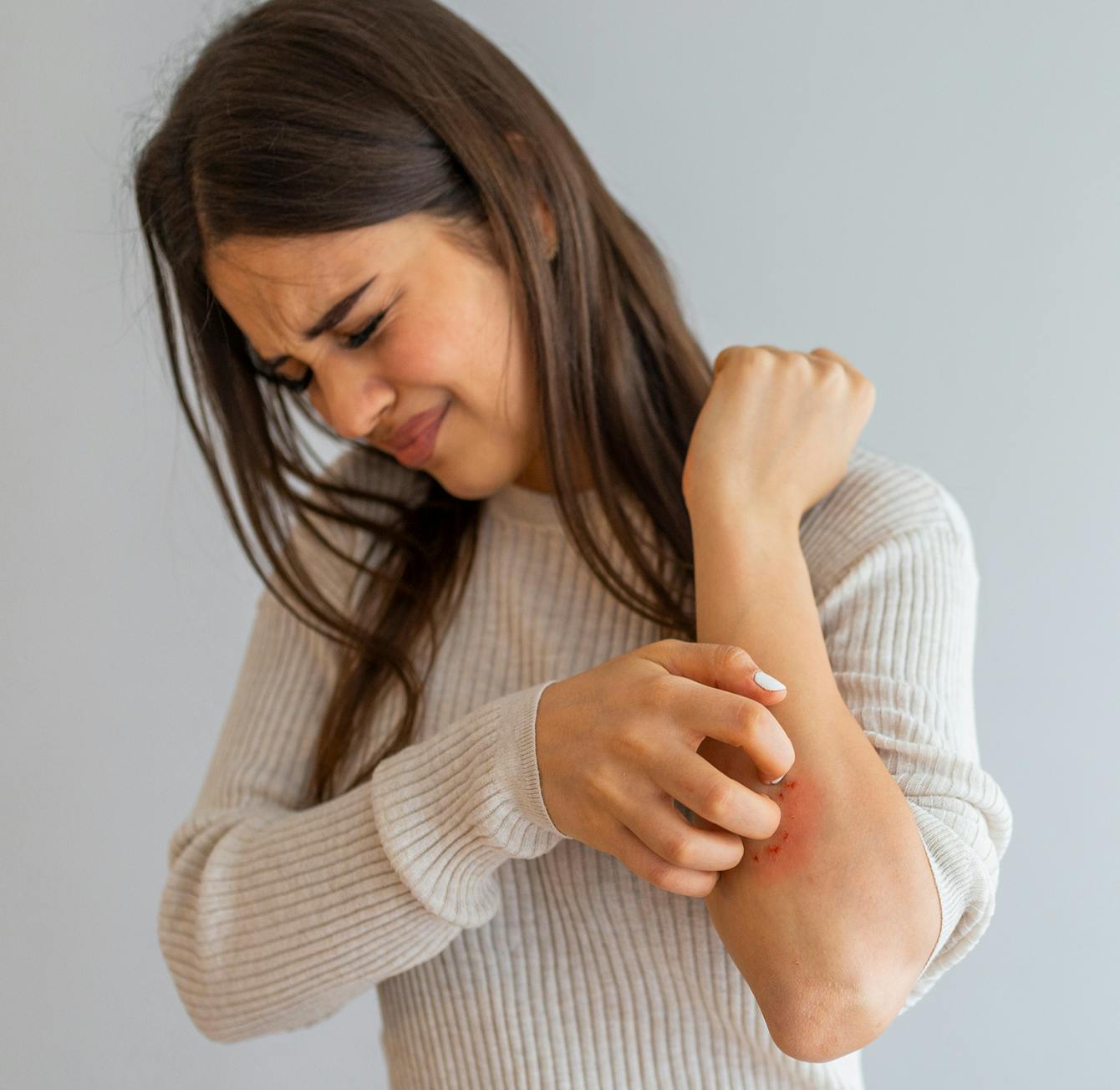Hives and eczema are common skin conditions that involve the immune system’s response to various triggers, with uncomfortable, sometimes persistent symptoms. Hives are characterized by the sudden appearance of red, itchy welts that can pop up anywhere on the body. Eczema is a chronic condition known for causing dry, itchy, and inflamed patches of skin.
What are the symptoms of hives?
Hives appear as raised, often itchy, red, or skin-colored welts on the skin’s surface. These welts can vary in size and may join to form larger areas called plaques. They can appear on any part of the body and are typically accompanied by:
- Intense itching or a burning sensation
- Swelling of the surrounding skin
- Redness and warmth to the touch
- Fluctuation in size and shape over hours or days
The symptoms of hives can be acute, lasting less than six weeks, or chronic, persisting for months or even years. In some cases, angioedema, a deeper form of swelling, can accompany hives, affecting the eyes, lips, and extremities. It’s important to note that while hives can be uncomfortable, they are often manageable with the right treatment.





